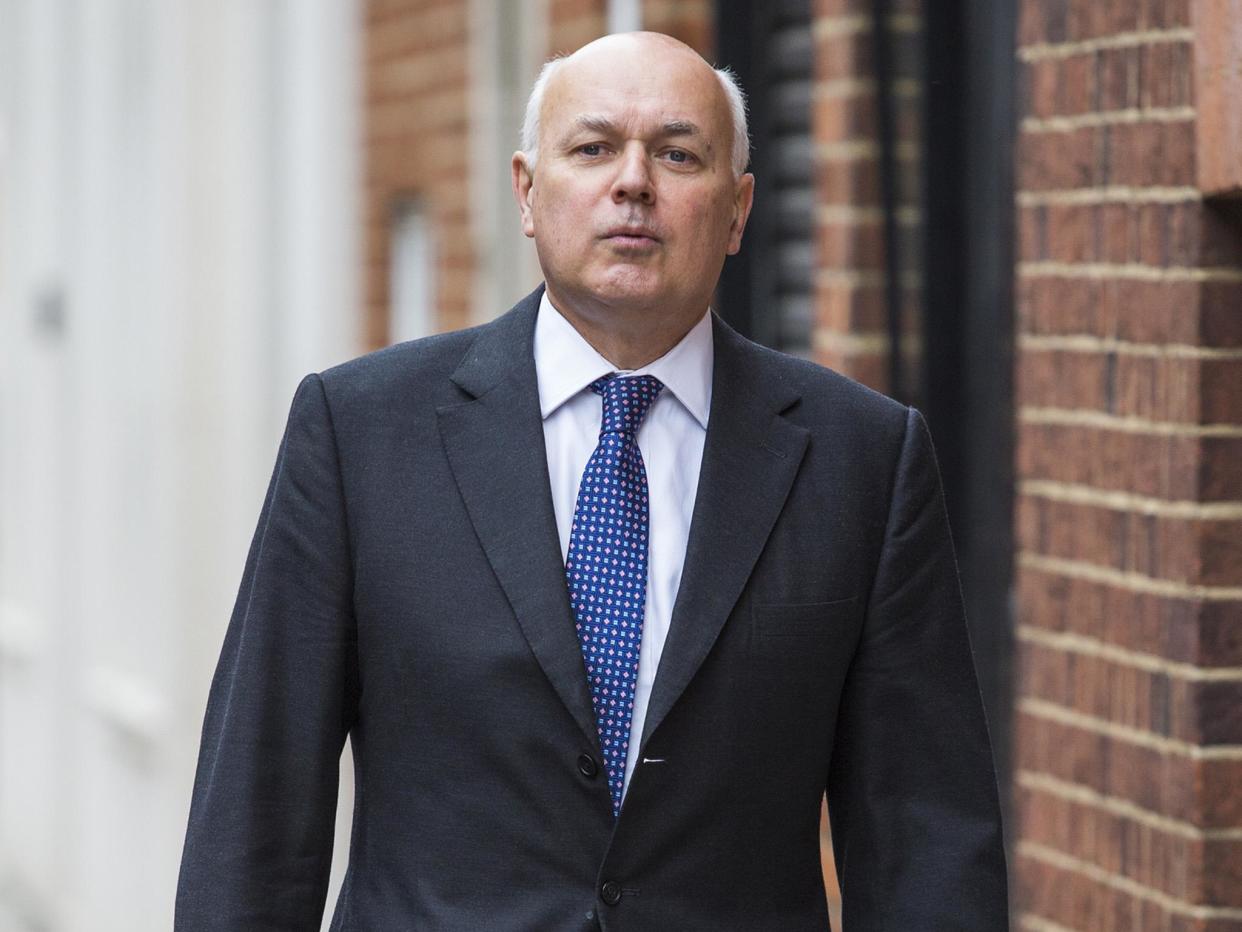Some key EU workers should be exempt from post-Brexit immigration controls, suggests Iain Duncan Smith

Prominent Leave campaigner Iain Duncan Smith has suggested some occupations, such as academics, scientists and financial sector workers should be exempt “from time to time” from controls on EU migration post-Brexit.
Setting out his vision for the UK’s immigration system after Britain’s departure from the bloc Mr Duncan Smith, the former Work and Pensions Secretary, urges the Government to ensure the new system “is as flexible as possible for those areas of high added value but low-value employee”.
“Examples of those would be academics, scientists and people in financial services,” he wrote in an article for Conservative Home. “In these categories it should be possible arrange processes by which a very light-touch system operated with much fewer restrictions.”
The new system, he argues, “should allow the Government from time to time to exempt some occupations from restrictions whilst tightening up on other occupations” in order to adapt to changing circumstances in the UK economy.
Mr Duncan Smith added: “The Migration Advisory Committee’s Shortage Occupation List could be used for this purpose. For example, high added value migrants who are low in number, for example scientists and software engineers, might be exempted but a range of lower-skilled work would be restricted by both the cap and the permit system.”
His comments come a month after a leaked Home Office document outlining a strict post-Brexit immigration policy included stringent measures for all but the highest-skilled of EU migrants. It is expected that Amber Rudd, the Home Secretary, will publish her initial proposals on the UK’s future immigration system towards the end of 2017.
Earlier this year a survey of EU nationals at FTSE 250 companies showed that 56 per cent said they were “highly likely” to “quite likely” to leave the UK before the conclusion of the Brexit negotiations, exacerbating fears of a severe brain drain.
In his article Mr Duncan Smith added there is also the “issue of benefit access” to be considered for migrants after Brexit, claiming: “Although not all the figures are in the public domain, the last available figures finally published by the Government show that EU citizens in the UK received over £4bn in benefits.”
Whether you believe this is a pull factor or not, it makes sense to bring this cost under control. To do so, people allowed in to work should have to have a record of contributions over a period of time before being able to claim support from the state,” he added.

 Yahoo News
Yahoo News 
